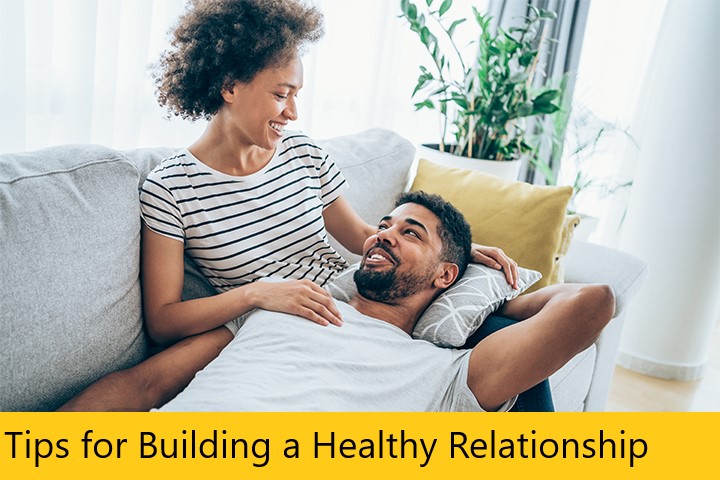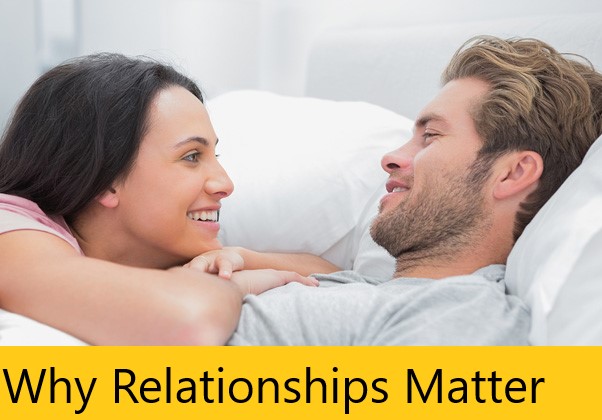7 Tips for Building Healthy Family Relationships – Do you feel like your family relationships aren’t as strong as they could be? The family unit is one of the most important parts of society. From your earliest years, your family relationships laid the foundation for your personality development, health, education, and career advancement – they molded you into who you are today.
However, as people grow and move to other parts of the world or as children grow and start attending school and parents work for long hours each day, and grandparents are upcountry, it can be difficult to maintain healthy family relationships.
The good news is that there are many things you can do to improve your family relationships, whether with your parents, siblings, or children. No matter how large or small your family is, the tips in this article can help you get started on the right foot.
What is a Family?
A family is a group of people who are related by blood, marriage, or adoption.
Families come in all shapes and sizes, and no one definition fits everyone.
Some families are large, with many members living together in one place. Other families are small, with only a few members sharing an address.
Families can be made up of parents, children, siblings, aunts, uncles, grandparents, and even pets!
Every family is unique, and that’s what makes them so special. Each one has its own strengths and weaknesses, but together they make up the biggest force in our lives. We owe it to our families to give them the love and support they need to thrive.
Tips for Building Healthy Family Relationships
Building healthy family relationships is key to living a happy and fulfilling life. Here are some tips for building strong relationships with your loved ones:
1. Communicate
Communication is a key ingredient in building healthy family relationships, as it can help build trust and understanding.
When family members can communicate effectively with one another, their relationship tends to be stronger.
One way communication can help build healthier family relationships is by reducing conflict. When members voice their concerns and disagreements constructively, they tend to resolve issues more quickly.
Additionally, open communication allows family members to share their feelings without feeling judged or criticized. This allows everyone involved to feel heard and valued.
Families that have strong communication skills also tend to resolve conflicts more effectively. They are able to identify compromises and solutions that everyone can agree on.
This helps prevent tensions from escalating out of control and damaging the overall relationship.
Read More : Salvabrani.com

Communication can also be beneficial when developing trust within the family unit. When families share confidences candidly, they develop a sense of trustworthiness towards each other. This promotes a sense of cooperation and teamwork within the home.
2. Spend time together
Spending time together can help foster a sense of closeness and communication, which can be key to maintaining positive relationships. There are many ways to spend time with your family, so find the activities that work best for you and your loved ones.
Here are some ideas:
- Play a game together. Take turns picking a card and telling a story based on the contents of the card. Or play charades or Guess Who?
- Watch a movie together. Swap stories after finishing the film, or debate whose favorite scene was (or wasn’t).
- Go for a walk or run together. If exercise is important to you and your loved ones, finding ways to spend time outdoors together can be a great way to get moving and have fun at the same time!
- Cook dinner together. Set the table, mix ingredients, and let each person take turns cooking while discussing what they’re cooking, talking about their day, or just enjoying each other’s company.
3. Appreciate each other’s differences
Different people have different strengths and weaknesses, which can often be challenging to balance in a relationship.
It’s important not to try to force someone into being someone they’re not or try to change them to fit into our idealized version of what you think a good family member should be.
Instead, we should encourage our loved ones to use their special gifts and personalities in ways that benefit everyone involved.
4. Respect each other
Respecting one another is the cornerstone of a healthy family relationship. This means listening to each other and not taking things personally, even when disagreements arise. It also means communicating honestly and respectfully.
For example, instead of speaking over or down to your partner, try to pause and really hear what they are saying. This will help you understand their perspective better and may lead to productive discussion.
When families respect one another, it can create a sense of harmony and stability that is crucial for a happy and healthy home. Furthermore, showing respect for each other can help children learn to do the same. When parents model good behavior, children are more likely to emulate it.
5. Set boundaries
Boundaries set expectations for behavior and communicate what is and is not acceptable in the relationship.
This can help protect both people in the relationship from feeling overwhelmed or unfairly judged and manage conflicts without turning into power struggles.
One thing, though, don’t change your mind once you’ve set a boundary; stick to it even if it feels like a hardship at first. Breaking a boundary often results in resentment down the line, so make sure you don’t put yourself in that position by being consistent from the beginning.
6. Apologize when wrong
When you make a mistake, it is important to apologize to your loved ones as soon as possible to repair any damage that you may have done.
Also, ensure that your apology is genuine. Do not sugarcoat your words to make things seem less bad for yourself or the other person involved.
Make it clear that you are sorry and take any steps necessary to rectify the situation. This will put your partner at ease and show them that you are serious about correcting this mistake as quickly as possible.
7. Learn to forgive
Forgiving someone can be difficult, but it is one of the most important things you can do for your relationship. Here are four ways that forgiving can benefit your family:
- It allows you to let go of the past and move on
- It creates space in the relationship for new and healthier communication
- It reduces resentment and builds trust between family members
- It creates a foundation for future positive relationships








